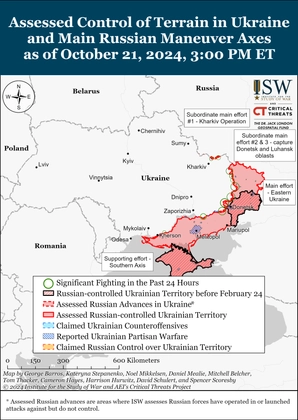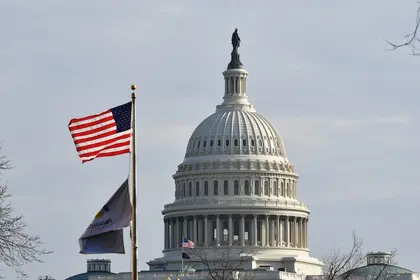Several pieces of good news have been buried amid the overall doomsday coverage about the future of US support for Ukraine.
First, the Continuing Resolution approved on Sep. 30 separated the issue of general government funding from the issue of Ukraine aid.
JOIN US ON TELEGRAM
Follow our coverage of the war on the @Kyivpost_official.
That’s a positive. Regardless of Ukraine aid, Congress needs to find a sustainable path forward on the overall US budget deficit (which is huge at about $1.5 trillion), and on congressional leadership now that the Republican House Speaker has been removed. Once Congress does so, however, it sets the conditions for a clean vote on Ukraine aid as a standalone issue, without being conflated with wider concerns over the budget.
Second, the Oct. 5 ousting of Speaker Kevin McCarthy was not about Ukraine aid, but about a handful of House members objecting to his cross-party Republican-Democrat deal to approve the general budgetary continuing resolution.
One of his leading Republican critics, Representative Matt Gaetz, exercised his right to introduce a Motion to Vacate under House rules that were approved when McCarthy was first elected. McCarthy did not have the votes to stop the motion, and the Democrats did not come to his rescue.
Looking forward, there is no chance of a Democratic Speaker being elected, meaning the next Speaker will also be a Republican. Any new Republican Speaker, however, may well link his or her assumption of the gavel to a change in this destabilizing house rule — probably by modestly increasing the number of members required to file a Motion to Vacate.

ISW Russian Offensive Campaign Assessment, October, 22, 2024
Third, Ukraine aid is very clearly in the US national interest (see below) and enjoys the support of the vast majorities of both parties, in both the House and the Senate; a Sep. 27 House vote showed 126 Republicans backing Ukraine aid and 93 opposed. The votes are there, if a supplemental appropriation can be brought to the floor in both chambers. And with a rule change, the risk of another Motion to Vacate a new Speaker is considerably smaller.
Republican House members should be confident that Republican voters can be convinced to support aid to Ukraine; it is clearly framed as an American national interest: when GOP Presidential candidate Nikki Haley witheringly deconstructed fellow candidate Vivek Ramaswamy’s calls to abandon Ukraine, she was greeted with spontaneous applause from a Republican audience. Moreover, the outrage over the Oct. 7 terrorist attacks on Israel should be a reminder that no acts of indiscriminate killing of civilians, whether by Palestinians or by Russians, will ever find favor with the American people.
Fourth, the questions raised by all but the most extreme Members of Congress about renewed aid for Ukraine are perfectly legitimate and deserve honest answers. Representative Jim Jordan, one of the Republican candidates for Speaker, put it simply: “What is the goal? What is the objective?” he asked. “Second question: if you can tell us what the goal is, how is the money being spent? How can we account for it?”
These are good questions — to which there are good answers. But these answers need to be articulated clearly and forthrightly by the President in defending his administration’s request for a renewed aid package, something that has not happened to date. Let us hope the President’s address to the nation on this topic within the coming days answers these questions definitively.
Concerning the goal, we must be absolutely clear: Putin’s effort to reestablish the Russian Empire, which threatens all of Europe, including NATO allies that were formerly occupied by Russia, must be stopped in Ukraine. Russian forces must be defeated and withdrawn from all Ukrainian territory. Anything less will set the stage for future war in Europe, in which the United States may face a treaty obligation to defend NATO allies. We do not want to be forced into that scenario. Aid to Ukraine is not charity, it is self-preservation.
US military aid to Ukraine will stop Putin’s crazed colonial ambitions without the deployment of US ground troops and the loss of American lives. We provide the equipment, and Ukrainians do the fighting – to defend themselves, defeat Russia, and remove the threat to Europe. This is why US aid to Ukraine is a fundamental American national security interest.
Ambassador Kurt Volker is a Distinguished Fellow at the Center for European Policy Analysis. A leading expert in US foreign and national security policy, he served as US Special Representative for Ukraine Negotiations from 2017-2019, and as US Ambassador to NATO from 2008-2009.
Reprinted with the author’s permission from CEPA. See the original here.
The views expressed in this opinion article are the author’s and not necessarily those of Kyiv Post.
You can also highlight the text and press Ctrl + Enter






